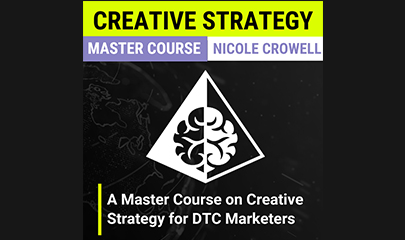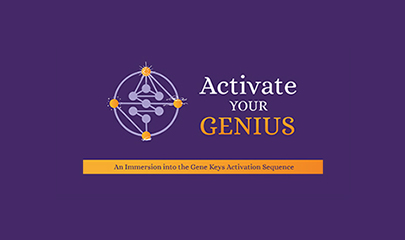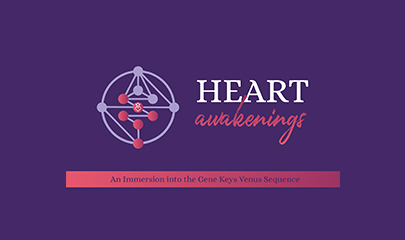-
×
 Adobe After Effects CC Quick Start By Chad Perkins
1 × $5,00
Adobe After Effects CC Quick Start By Chad Perkins
1 × $5,00 -
×
 After Effects Accelerated by Cameron Pierron
1 × $15,00
After Effects Accelerated by Cameron Pierron
1 × $15,00 -
×
 3D in Adobe Illustrator CC By Jason Hoppe
1 × $5,00
3D in Adobe Illustrator CC By Jason Hoppe
1 × $5,00 -
×
![Retail-Arbitrage-from-Home-with-Software-[Full-Masterclass]-By-Stone-River-eLearning-free-download](https://kobozon.com/wp-content/uploads/2024/10/1-3.png) Retail Arbitrage from Home with Software [Full Masterclass] By Stone River eLearning
1 × $23,00
Retail Arbitrage from Home with Software [Full Masterclass] By Stone River eLearning
1 × $23,00 -
×
 Shopify Dropshipping Masters By Amber Tange
1 × $54,00
Shopify Dropshipping Masters By Amber Tange
1 × $54,00 -
×
 Path To Powers By John Demartini
1 × $31,00
Path To Powers By John Demartini
1 × $31,00
Introduction to Interpersonal Neurobiology for Everyday Life by Daniel Siegel
$70,00 $15,00
SKU: KOB.60590klfI5L
Category: Personal Development
Tags: Daniel Siegel, for Everyday Life, Interpersonal, Introduction to Interpersonal Neurobiology
Introduction to Interpersonal Neurobiology for Everyday Life by Daniel Siegel – Digital Download!
Let’s embark on a thrilling journey to uncover extraordinary insights that ignite your curiosity and transform your understanding
Introduction to Interpersonal Neurobiology for Everyday Life by Daniel Siegel
Overview

Introduction to Interpersonal Neurobiology for Everyday Life by Daniel Siegel
In our fast-paced and increasingly interconnected world, understanding the profound impact of our relationships on mental health and personal development has never been more critical. Dr. Daniel J. Siegel’s interdisciplinary framework of Interpersonal Neurobiology (IPNB) offers valuable insights into how our minds, brains, and interactions influence not only our well-being but also the fabric of our communities. IPNB branches across multiple disciplines including neuroscience, psychology, and sociology creating a rich tapestry of knowledge that reveals how emotional and relational dynamics shape our cognitive processes and behaviors. By recognizing that the mind is not simply an isolated entity but a relational phenomenon, Siegel invites us to appreciate the communal aspects of mental health. Through an understanding of IPNB principles, we can cultivate healthier relationships and improve our emotional well-being. This article explores the foundational concepts of IPNB, its relevance to everyday life, and practical strategies to harness its insights for personal growth.
Understanding Interpersonal Neurobiology
Interpersonal Neurobiology (IPNB) is the profound intersection where neuroscience and human relationships meet. Imagine a continuous dance between minds, where patterns and rhythms facilitate communication, emotional exchange, and growth. Just as dancers intuitively adjust to one another’s movements, our brains adapt and respond to our relational experiences. A simple smile can ignite a cascade of neural responses in both the giver and receiver, promoting feelings of connection and affection. Conversely, experiences of rejection or isolation can lead to chaos in our mental states, hindering the pathways necessary for healthy emotional functioning.
Central to IPNB is the concept of integration. This can be likened to a well-oiled machine where various parts work harmoniously towards a common function. In contrast, a chaotic assembly line where components don’t communicate leads to inefficiency and errors. Integration in this context refers to the linking of differentiated parts of our thoughts, feelings, and bodily sensations into a coherent experience. Research shows that individuals who experience integration tend to exhibit greater resilience, improved emotional regulation, and healthier interpersonal relationships.
Dr. Siegel emphasizes how our interactions shape the architecture of our brain, akin to how running water carves a riverbed over time. When nurtured, these interactions can lead to well-developed neural pathways that support emotional intelligence and resilience. Disruptions in these relational patterns, however, can cause rifts manifesting as dysregulated emotions or impaired social functionality. As we dive deeper into IPNB concepts, it becomes clear that understanding how our relationships affect our mental processes offers valuable insights into fostering personal growth and emotional well-being.
Core Concepts of Interpersonal Neurobiology
The foundation of Interpersonal Neurobiology is built upon several core concepts that intertwine the mind, brain, and relationships. These concepts not only enhance our understanding of mental health but also provide actionable insights that can be applied in our day-to-day lives.
- Integration: Integration lies at the heart of IPNB, symbolizing the process of linking disparate aspects of experiences, be they emotional, cognitive, or relational. When individuals are integrated, their thoughts and feelings harmoniously align, allowing for clarity and emotional balance.
- Neuroscience and Relationships: IPNB highlights how our interpersonal experiences shape and mold our brain, particularly during early development. The quality of our relationships with caregivers significantly influences our brain’s architecture and subsequent abilities such as emotional regulation and memory formation.
- Neuroplasticity: One of the most hopeful aspects of IPNB is the principle of neuroplasticity the brain’s ability to reorganize itself based on experiences. Positive social interactions can promote neuroplastic changes that enhance mental health, while negative experiences may lead to detrimental neural patterns.
- The Triangle of Well-being: This model illustrates the interconnectedness of brain processes, mental states, and relational contexts, suggesting that a healthy mind is nurtured through integrated social experiences.
- The Role of Attachment: Early attachment experiences with caregivers shape our ability to form secure relationships in adulthood, highlighting the long-lasting impact of early relational dynamics.
- Therapeutic Applications: Recognizing the importance of interpersonal dynamics, practitioners can utilize IPNB principles across fields to foster healing, encourage emotional openness, and cultivate healthier family and community relationships.
By distilling complex psychological phenomena into these core tenets, IPNB empowers individuals to reflect on their relationships, enhances emotional intelligence, and encourages a proactive approach to mental well-being.
The Interdisciplinary Framework of IPNB
Interpersonal Neurobiology is a uniquely interdisciplinary framework that synthesizes insights from diverse fields such as neuroscience, psychology, anthropology, biology, and complex systems theory. This integrative approach underscores the notion that the mind is not merely an individual construct but is deeply interwoven with relational contexts.
- Neuroscience: Through neuroscience, IPNB elucidates how our brain structure and functioning are shaped by relational experiences. For example, studies have shown that children who experience nurturing relationships develop more robust neural connections, impacting their emotional and cognitive development.
- Psychology: Integrating psychological insights allows practitioners to recognize the emotional undercurrents that drive relational behavior. Understanding attachment styles and emotional regulation enhances therapeutic practices, creating pathways for healing and recovery.
- Anthropology and Systems Theory: These disciplines provide a broader context for understanding the evolution of human relationships. By analyzing human behavior in cultural settings, researchers can discern patterns that emerge from societal relationships, which have implications for mental health interventions.
- Relational Context: Siegel emphasizes that mental health must be viewed not only through a neurological lens but also through the intricate web of interpersonal exchanges. These connections fundamentally shape our identities and coping strategies, highlighting the significance of relational dynamics in shaping mental health outcomes.
By bridging these various domains, IPNB crafts a comprehensive lens through which we can analyze the interconnectedness of mind, brain, and relationships. This holistic understanding fosters deeper compassion, enhances emotional regulation, and promotes healthier relationship patterns, ultimately equipping individuals with the tools necessary for personal and communal growth.
Importance of Relationships in Mental Health
The significance of relationships in mental health cannot be overstated. Drawing upon the principles of Interpersonal Neurobiology, it becomes evident that the quality of our interactions shapes our emotional landscapes, and by extension, our mental well-being. Just as a garden flourishes through nurturing care, our minds thrive in the presence of healthy relationships.
- Early Relational Experiences: The initial attachment relationships formed in childhood significantly affect emotional regulation and social functioning. Secure attachments cultivate a sense of safety and belonging, while insecure attachments may lead to maladaptive responses such as anxiety and depression.
- Empathy and Emotional Connection: Healthy relationships foster empathic connections that nourish emotional intelligence and resilience. Empathy enables individuals to understand and share the feelings of others, promoting stronger relational bonds and reducing isolation.
- Impact of Disruption: Disruptions in early attachment can have lasting implications, leading to difficulties in forming healthy relationships later in life. Such disruptions may result in “chaotic” emotional states, making it difficult for individuals to connect with others meaningfully.
- Interpersonal Relationships as Protective Factors: Positive and supportive interpersonal relationships serve as protective factors against mental health issues. Research indicates that social support correlates with improved mental health outcomes, underscoring the importance of building nurturing relationships.
- Neuroplasticity and Healing: IPNB posits that through neuroplasticity, individuals can reshape their emotional responses and cognitive processes by consciously engaging in positive relational dynamics. By fostering a sense of community and connection, individuals can enhance their emotional resilience and overall well-being.
Emphasizing the importance of relationships offers individuals a blueprint for understanding how their connections shape their mental health journeys. As we nurture our interpersonal relationships, we also cultivate pathways to emotional resilience and psychological fortitude.
Application of Interpersonal Neurobiology
Applying the principles of Interpersonal Neurobiology in our lives illuminates pathways for emotional growth and relational enrichment. By integrating the insights derived from IPNB, individuals can consciously foster healthier relationships and create emotional resilience.
- Mindful Awareness: Practicing mindfulness allows individuals to cultivate awareness of their emotions and reactions, providing insight into the dynamics of their relationships. Simple exercises like focusing on one’s breath or engaging in body scans can enhance emotional regulation and clarity.
- Strengthening Communication: Open and empathetic communication fosters connection and understanding between individuals. By practicing active listening and emotional attunement, we can deepen our relationships and address conflicts constructively.
- Intentional Reflection: Reflecting on one’s relational experiences encourages personal insight and growth. Journaling about interactions, emotions, and triggers can facilitate self-awareness, promoting integrative processes that enhance emotional health.
- Building Supportive Communities: Engaging with supportive communities provides opportunities for connection and social engagement. These interactions not only enhance emotional well-being but also encourage the cultivation of compassion and empathy within social networks.
- Therapeutic Interventions: Professionals can apply IPNB principles to create therapeutic environments that promote healing and emotional integration. Techniques such as narrative therapy and emotionally focused therapy emphasize the relational aspects of healing.
Through these applications, individuals can leverage the insights gained from Interpersonal Neurobiology to foster personal growth, emotional health, and enriching relationships.
Enhancing Emotional Well-being
Enhancing emotional well-being through the framework of Interpersonal Neurobiology involves deliberate practices that cultivate mindfulness, empathy, and relational engagement. Here, we outline strategies to facilitate emotional growth and resilience in everyday life.
- Practice Mindfulness Regularly: Incorporating mindfulness into daily routines allows individuals to reconnect with their emotions and thoughts. Mindfulness practices such as meditation or yoga can foster a sense of calm and awareness, enhancing emotional regulation.
- Develop Strong Social Bonds: Actively nurture and maintain relationships that provide emotional support and connection. Engaging in community activities or social groups can strengthen interpersonal bonds and promote a sense of belonging.
- Engage in Reflective Practices: Reflection is a powerful tool for understanding emotions and behaviors. By taking time to contemplate personal experiences and responses in relationships, individuals can develop greater emotional insight and resilience.
- Foster Empathy: Empathy plays a critical role in enhancing emotional well-being. Practicing empathy by engaging in active listening and perspective-taking encourages compassion, understanding, and stronger relational connections.
- Limit Toxic Interactions: Identifying and minimizing exposure to toxic or harmful relationships is essential for emotional health. Surround yourself with individuals who encourage and support emotional well-being, rather than those who foster negativity.
By embracing these strategies informed by the principles of Interpersonal Neurobiology, individuals can enhance their emotional well-being and create stronger, healthier connections in their lives.
Integrating Mind, Brain, and Relationships
The integration of mind, brain, and relationships is a cornerstone of Daniel Siegel’s framework of Interpersonal Neurobiology. This triadic model emphasizes how these elements collaborate and influence one another, shaping our mental health and personal development.
- Holistic Perspective: Recognizing that the mind is both a product of neural activity and relational experiences invites a holistic view of mental health. This understanding encourages individuals to attend not only to their cognitive processes but also to the interpersonal dynamics that can enhance or detract from well-being.
- Functional Neural Connectivity: Studies show that healthy relational experiences promote the development and strengthening of neural pathways associated with emotional regulation and cognitive flexibility. For instance, cooperative relationships foster an environment conducive to brain growth and resilience, optimizing mental health.
- Melting Boundaries: The boundary between relational and neurological processes is porous; they continuously influence one another. The relational experiences we have shape our neural pathways, while our brain functioning impacts how we relate to others. This dynamic interaction forms an intricate feedback loop essential for personal and relational growth.
- Self-Regulation and Awareness: Integration involves achieving a state of self-awareness where individuals can comprehend and navigate their thoughts, feelings, and behaviors. This self-regulation enhances one’s ability to respond effectively in social contexts, fulfilling a vital role in establishing healthy, empathetic relationships.
- Therapeutic Applications of Integration: In therapeutic settings, the integration of mind, brain, and relationships can aid clients in developing healthier psychological frameworks. By promoting insight into these interconnections, therapists can guide clients towards greater emotional regulation and resilience.
Embracing the integration of mind, brain, and relationships, as envisioned by IPNB, offers profound implications for personal growth, emotional well-being, and the development of healthy interpersonal dynamics.
Real-Life Applications of IPNB Principles
The practical applications of Interpersonal Neurobiology principles reach far beyond the academic realm, influencing various aspects of everyday life. Below are some areas where these concepts can be effectively implemented:
- Parenting Strategies: Utilizing IPNB principles, parents can recognize the importance of secure attachments in shaping their children’s emotional development. By fostering nurturing relationships and demonstrating emotional attunement, parents can promote resilience and secure attachments in their children.
- Educational Environments: Educators who implement IPNB principles can create classrooms that prioritize emotional literacy, fostering an environment of emotional safety and connection. Acknowledging the significance of relationships in learning can improve student engagement and overall well-being.
- Workplace Culture: Organizational leaders can use insights from IPNB to cultivate collaborative and emotionally intelligent teams. By prioritizing relational dynamics and creating a culture of empathy, workplaces can enhance productivity and job satisfaction.
- Therapeutic Interventions: Mental health practitioners can implement IPNB principles to inform their therapeutic practices. Approaches that emphasize emotional attunement, secure attachment, and relational dynamics can significantly improve therapeutic outcomes for clients.
- Community Building: Fostering informal networks that prioritize emotional connections and support can greatly enhance community well-being. By attending to relational dynamics within communities, individuals can create spaces that encourage growth, connection, and resilience.
By actively applying the principles of Interpersonal Neurobiology in these contexts, individuals can enhance emotional well-being, improve interpersonal relationships, and create environments that nurture personal and communal growth.
Integration and Its Impact
Integration, as a central focus of Interpersonal Neurobiology, significantly impacts both mental health and personal growth. By linking different aspects of our experiences, individuals can foster improved emotional regulation and interpersonal effectiveness.
- Cohesion in Mind and Relationships: The process of integration enables individuals to harmonize their feelings, thoughts, and experiences, creating a cohesive self. This coherence facilitates better emotional regulation and the ability to navigate social situations with confidence.
- Enhancing Resilience: Integrated experiences empower individuals to bounce back from adversity. A coherent sense of self, reinforced by healthy relationships, promotes resilience in the face of challenges, allowing individuals to maintain emotional equilibrium.
- Fostering Adaptive Coping Strategies: Integration encourages adaptive coping strategies, enabling individuals to address stressors constructively. Healthy integration of thoughts, emotions, and bodily sensations contributes to healthier responses in challenging situations, supporting mental wellbeing.
- Reducing Symptoms of Mental Health Disorders: A lack of integration can lead to chaotic or rigid mental states. By fostering integration, individuals may experience reduced symptoms of anxiety, depression, and other mental health disorders, leading to improved overall functioning.
- Promoting Healthy Relationships: Integration enhances an individual’s ability to connect with others empathetically. By understanding and integrating personal experiences within relational contexts, individuals can cultivate meaningful connections that enrich their lives.
The impact of integration permeates various dimensions of life. From fostering resilience during challenging times to improving interpersonal connections, integration serves as a powerful mechanism that shapes mental health and personal growth.
Role of Integration in Personal Growth
The role of integration in personal growth is multifaceted and deeply rooted in the principles of Interpersonal Neurobiology. This growth process is characterized by the interconnections made between relationships, thoughts, and emotions.
- Improved Self-Understanding: Integration promotes greater self-awareness by allowing individuals to connect with their internal thoughts, feelings, and values. This enhanced self-understanding drives personal growth, encouraging individuals to make conscious choices that align with their authentic selves.
- Navigating Life Transitions: Integration aids individuals in adapting to new circumstances and transitions, whether they relate to relationships, careers, or personal stages of life. A well-integrated mind allows for flexibility in adapting to change, fostering greater ease during transitional periods.
- Building Emotional Intelligence: Integration enhances emotional intelligence by linking personal experiences with emotional responses. Increased emotional intelligence cultivates empathy and compassion for others, vital skills that enrich personal relationships and interpersonal dynamics.
- Self-Compassion and Acceptance: Integrated experiences foster greater self-compassion and acceptance, allowing individuals to embrace their vulnerabilities and imperfections. This acceptance promotes resilience and encourages individuals to confront challenges with a more compassionate mindset.
- Strengthened Relationship Skills: Personal growth is often cultivated through relational interactions. Individuals who embrace integration develop stronger relational skills and are more adept at fostering healthy connections, ultimately enriching their social experiences.
In essence, integration acts as a catalyst for personal growth, shaping how individuals understand themselves and navigate their relationships. By cultivating interconnectedness within their emotional, cognitive, and relational experiences, individuals can unlock pathways toward lifelong personal development.
Effects of Integration on Mental Health
The profound effects of integration on mental health underscore the significance of Interpersonal Neurobiology in facilitating psychological well-being. Through integration, individuals can access a more balanced and harmonious state of mental functioning.
- Enhanced Emotional Regulation: Integrated individuals frequently demonstrate improved emotional regulation, enabling them to respond to stressors with composure and resilience. This capacity to manage emotions significantly reduces the likelihood of mental health disorders, such as anxiety or depression.
- Fostering Resilience: Integration promotes resilience by cultivating a coherent sense of self. Individuals who experience secure attachments and connection to their emotions are better equipped to withstand adversity, maintaining mental health even in challenging circumstances.
- Positive Neuroplastic Changes: Research shows that healthy, integrated relationships lead to neuroplastic changes within the brain. These changes enhance emotional awareness and regulation, positively influencing mental health outcomes across the lifespan.
- Reduction of Psychological Symptoms: Integration aids in minimizing symptoms of mental health disorders. By fostering coherence within an individual’s mental processes and relations, individuals can experience relief from anxiety, depressive symptoms, and emotional dysregulation.
- Increased Lifespan and Well-being: Biopsychosocial research underscores that integrated individuals tend to lead more fulfilling lives, characterized by better overall health and extended lifespan. Healthy relationships contribute significantly to life satisfaction and emotional health.
Ultimately, the effects of integration are instrumental in promoting mental health and emotional well-being. The insights provided by Interpersonal Neurobiology offer compelling evidence that nurturing the connections between our minds and relationships is vital for a flourishing life.
Case Studies Demonstrating Integration in Relationships
Case studies provide important contextual evidence for how integration, as depicted in Interpersonal Neurobiology, impacts relational dynamics and mental health outcomes. These practical examples illustrate the transformative effects of integrated interactions.
- Therapeutic Healing: One notable case involved a client who struggled with past trauma resulting from chaotic family dynamics. Through therapy informed by IPNB principles, the client was encouraged to explore their relationships and develop insights into their emotional responses. As the client reflected on these connections, they began to integrate their painful experiences into a coherent narrative, leading to significant healing and personal growth.
- Parent-Child Relationship: Another case examined a mother and her child who struggled with attachment difficulties. By employing IPNB concepts, the mother learned to attune to her child’s emotional needs through consistent, responsive interactions. This change fostered secure attachment, promoting resilience in the child and reducing anxiety and behavioral issues.
- Workplace Integration: A case study in an organizational setting highlighted the role of integrated communication in fostering team cohesion. Through workshops that emphasized understanding emotional dynamics, team members learned to trust one another and communicate openly. The resulting integration led to increased collaboration, reduced workplace stress, and enhanced job satisfaction.
- Community Resilience: A community-driven initiative demonstrated the power of collective integration in promoting well-being. By fostering open dialogue and connection among residents, individuals were able to share experiences, validate emotions, and create a sense of belonging. This relational integration strengthened community ties, ultimately leading to improved mental health outcomes for many individuals.
- Educational Outcomes: In a classroom setting, a teacher implemented IPNB principles by prioritizing emotional awareness and empathy within student interactions. As students learned to communicate openly and support one another, their academic performance and emotional well-being improved significantly. This integration of relational dynamics contributed to a more harmonious classroom environment.
These case studies illustrate the transformative potential of integrative practices within various relational contexts. By nurturing connections and fostering communication, individuals can experience profound personal growth and enhanced mental health outcomes.
Practical Strategies for Everyday Life
Incorporating the principles of Interpersonal Neurobiology into everyday life promotes emotional well-being and enriches relationships. Here are practical strategies to enhance emotional regulation and personal growth:
- Mindfulness Practices: Engage in regular mindfulness activities, such as meditation or mindful walking. Mindfulness enhances awareness of thoughts and emotions, leading to improved emotional regulation and reduced reactivity.
- Journaling for Reflection: Maintaining a reflective journal facilitates personal insight. Write about daily experiences, emotional reactions, and relational dynamics to cultivate a deeper understanding of your emotions and triggers.
- Quality Time with Loved Ones: Invest in meaningful interactions with loved ones. By prioritizing quality time, individuals can strengthen emotional bonds, share experiences, and reinforce a sense of connection.
- Emotional Check-ins: Conduct regular emotional check-ins with yourself and others. Assessing emotional states fosters awareness and promotes empathetic conversations that enhance relational dynamics.
- Participate in Community Activities: Engage in community events to foster connection and belonging. Building supportive relationships within a community cultivates a sense of emotional security and resilience.
- Practice Active Listening: When interacting with others, practice active listening techniques. Focus on understanding others’ perspectives without preparing your response in advance. This practice enhances empathy and strengthens bonds.
By implementing these practical strategies grounded in IPNB, individuals can cultivate emotional well-being, strengthen relationships, and create environments that foster meaningful connection.
Techniques for Improving Emotional Regulation
Improving emotional regulation is crucial for personal well-being and fostering healthier relationships. The following techniques, grounded in the principles of Interpersonal Neurobiology, can help individuals enhance their emotional awareness and management:
- Grounding Exercises: Utilize grounding techniques to anchor yourself in the present moment. Activities such as deep breathing or sensory awareness can facilitate emotional regulation during moments of distress.
- Cognitive Reframing: Practice cognitive reframing by contemplating alternative perspectives in challenging situations. By identifying negative thought patterns and reframing them, individuals can cultivate more adaptive emotional responses.
- Emotion Regulation Skills: Develop specific emotion regulation skills that include identifying emotional triggers, understanding personal boundaries, and learning self-soothing techniques. These skills empower individuals to navigate challenging emotional experiences more effectively.
- Self-Reflection: Engage in regular self-reflection to assess emotional responses and identify patterns. Understanding triggers and emotional fluctuations promotes greater self-awareness and supports healthier coping strategies.
- Supportive Relationships: Build and nurture supportive relationships that promote emotional expression. Sharing thoughts and feelings within safe environments fosters emotional regulation and encourages constructive feedback.
By integrating these techniques into daily routines, individuals can significantly enhance their emotional regulation, leading to improved personal well-being and healthier interpersonal dynamics.
Mindfulness Practices for Enhanced Awareness
Mindfulness practices stand as a cornerstone of enhancing awareness and emotional regulation. Rooted in the principles of Interpersonal Neurobiology, these practices offer individuals an opportunity to cultivate presence, empathy, and emotional intelligence in their daily interactions.
- Mindful Breathing: Set aside time each day for mindful breathing exercises. Focus on your breath, observing its natural rhythm without trying to control it. This practice promotes relaxation and helps ground you in the present moment.
- Body Scan Meditation: Engage in body scan meditation to increase body awareness. Lie down comfortably and mentally observe each part of your body, noting sensations and tensions. This practice fosters connection between mind and body, promoting relaxation.
- Mindful Eating: Practice mindful eating by savoring each bite at meal times. Pay attention to the flavors, textures, and sensations of food. This practice not only enhances appreciation for nourishment but also contributes to emotional regulation.
- Daily Gratitude Reflection: Incorporate gratitude reflection into your routine by identifying positive experiences or moments from the day. Acknowledging and appreciating these moments fosters a positive mindset and emotional awareness.
- Mindful Walking: While walking, engage all your senses. Notice the sensations in your feet, the sights around you, and the rhythm of your breath. This practice heightens sensory awareness and encourages being present.
By incorporating mindfulness practices into daily life, individuals can cultivate enhanced emotional awareness, resulting in improved emotional regulation and enriched interpersonal relationships.
Exercises for Fostering Empathy and Connection
Fostering empathy and connection is vital for enhancing personal relationships and emotional well-being. Engaging in specific exercises rooted in Interpersonal Neurobiology can further develop empathetic skills and deepen social connections.
- Perspective-Taking Exercises: Practice perspective-taking by imagining how someone else feels in a given situation. Consider their thoughts, emotions, and experiences. This exercise enhances empathy and understanding within relationships.
- Active Listening Practices: Enhance relational engagement by practicing active listening. Offer your full attention, refrain from interrupting, and summarize what the other person shares to validate their emotions and experiences.
- Gratitude Exercises: Express gratitude towards others by sharing appreciation for their support or positive interactions. This exercise builds connection and mutual respect, enhancing relational dynamics.
- Empathy Journaling: Keep an empathy journal where you reflect on empathetic experiences or situations where you felt connected to others. By analyzing these moments, you can further cultivate empathy and understanding.
- Acts of Kindness: Make it a goal to perform small acts of kindness within your community. Expressing kindness strengthens connections and nurtures a sense of belonging.
By committing to these exercises, individuals can deepen their empathetic engagement and foster richer connections in their personal and communal lives.
Professional Applications of Interpersonal Neurobiology
The principles of Interpersonal Neurobiology extend beyond personal growth; they also inform various professional fields. Understanding how the mind, brain, and relationships intersect has significant implications for diverse professions.
- Mental Health Practice: In therapeutic settings, mental health practitioners can utilize IPNB principles to foster empathetic, attuned relationships. Approaches that emphasize secure attachments and communication can lead to improved client outcomes.
- Education: Educators who integrate IPNB principles can create supportive learning environments that prioritize emotional intelligence and social skills. Understanding how relationships impact learning enhances educational practices.
- Leadership Development: Leaders can adopt IPNB principles to cultivate emotionally intelligent teams. By fostering open communication and empathy, leaders can create workplaces conducive to collaboration and innovation.
- Community Health Initiatives: Public health professionals can leverage IPNB insights to design community programs that emphasize the importance of relationships in emotional well-being. Such initiatives can foster social cohesion and improve mental health outcomes.
- Conflict Resolution: Professionals engaged in conflict resolution can apply IPNB frameworks to enhance understanding of relational dynamics. Recognizing the interconnectedness of emotions and behaviors can lead to more effective conflict mediation.
By applying the principles of Interpersonal Neurobiology across various professional contexts, individuals can deepen their understanding of relational dynamics and promote healthier interactions in their workplaces and communities.
Implications for Mental Health Practitioners
IPNB offers significant implications for mental health practitioners, enriching therapeutic practices and shaping approaches to client care. Understanding how interpersonal dynamics influence mental health fosters holistic interventions that enhance client outcomes.
- Clinical Relationships: Practitioners can utilize IPNB principles to cultivate strong therapeutic alliances with clients. Attuned communication and empathetic understanding promote trust and emotional safety, facilitating effective therapeutic work.
- Holistic Approach: By incorporating a holistic understanding of mental health, practitioners can address the interplay between brain processes and relational dynamics. This approach enables comprehensive treatment plans tailored to individual client needs.
- Fostering Resilience: IPNB empowers practitioners to teach clients about neuroplasticity and emotional regulation. Educating clients on these principles can enhance their psychological resilience and equip them with adaptive coping strategies.
- Culturally Sensitive Practices: Practitioners can draw on IPNB to promote cultural sensitivity in therapy. Understanding how culture shapes interpersonal relationships allows for more tailored, relevant interventions that respect the client’s background.
- Therapeutic Skills Development: Practitioners can enhance their therapeutic skills by exploring the integration of mindfulness and compassion training within their practice. These techniques can foster emotional awareness and improve client engagement.
Incorporating IPNB principles into professional practice empowers mental health practitioners to create more robust therapeutic alliances, cultivate resilience, and promote relational well-being among clients.
Integration of IPNB in Educational Settings
The integration of Interpersonal Neurobiology principles within educational settings can profoundly impact student success and well-being. By prioritizing emotional intelligence and relational dynamics, educators can create environments conducive to learning.
- Promoting Emotional Literacy: Educators can incorporate emotional literacy curricula that emphasize recognizing and understanding emotions. Teaching students about emotional regulation fosters healthier interpersonal relationships and coping mechanisms.
- Create Collaborative Learning Environments: Classrooms that prioritize collaboration and empathy enhance student relationships and engagement. Group activities that encourage teamwork foster a sense of belonging and interconnectedness.
- Mindfulness Initiatives: Schools can implement mindfulness programs focusing on self-awareness, breathing exercises, and stress management. Such initiatives can significantly enhance students’ emotional well-being and academic performance.
- Support for At-Risk Students: Educators can apply IPNB principles to identify at-risk students and provide tailored support. Understanding the influence of relational experiences on learning empowers educators to connect with students meaningfully.
- Professional Development for Teachers: Providing training for educators on the principles of IPNB allows for a deeper understanding of student mental health. This training equips teachers with the tools necessary to foster safe, nurturing classrooms.
Integrating IPNB principles within educational settings lays the groundwork for healthier school cultures, improved student outcomes, and a focus on emotional well-being.
Usage of IPNB in Organizational Leadership
Implementing Interpersonal Neurobiology principles in organizational leadership can transform workplace dynamics and enhance employee well-being. By prioritizing relational integration, leaders can cultivate productive and resilient teams.
- Cultivating Emotional Intelligence: Leaders can develop their emotional intelligence skills by engaging with IPNB principles. Understanding the relational aspects of leadership promotes a more empathetic and connected workplace.
- Creating Open Communication Channels: Encouraging open communication within teams enhances trust and collaboration. Leaders can model empathetic communication, promoting cultural sensitivity and improved interpersonal dynamics.
- Fostering Inclusivity: Integrating IPNB principles into organizational practices fosters inclusivity by recognizing the significance of diverse perspectives. Building inclusive teams enhances creativity and innovation.
- Promoting Employee Well-being: Leaders can prioritize employee well-being by implementing mental health initiatives that underscore the importance of relationships and emotional health. Supportive workplace environments enhance employee satisfaction and retention.
- Team-Building Exercises: Implementing team-building exercises that embrace empathy and emotional awareness strengthens interpersonal connections. By fostering a collaborative spirit, organizations can enhance workplace culture.
By leveraging IPNB principles in organizational leadership, employers can create dynamic, supportive environments that nurture employee well-being and drive collective success.
Future Directions in Interpersonal Neurobiology
The exploration of Interpersonal Neurobiology continues to evolve as researchers and practitioners delve into the implications and potential applications of this framework. Here are some future directions for the growth of IPNB:
- Expanded Research on Neural Synchrony: Future studies may explore neural synchrony during interpersonal interactions, providing insights into how these connections foster emotional resonance and empathy, improving therapeutic outcomes.
- Integrating Technology: Advances in neuroimaging and technology may allow researchers to visualize neural processes during social interactions, paving the way for neurobiological-based interventions that promote emotional connections.
- Broader Application in Therapy: Greater integration of IPNB principles in therapeutic settings may shift treatment paradigms, emphasizing holistic approaches that embrace relational dynamics to improve patient care.
- Implications for Public Health: IPNB’s focus on relational dynamics may contribute to public health strategies aimed at decreasing stigma associated with mental health issues while emphasizing the importance of supportive relationships.
- Educational Innovations: As more educators embrace IPNB in curricula, there is potential for innovative teaching designs emphasizing emotional intelligence, resilience, and social skills, shaping the future of education.
- Global Applications: IPNB can offer insights for addressing global challenges, such as social justice and climate change, by emphasizing empathy, collaboration, and relational well-being.
By exploring these future directions, IPNB continues to hold promise for improving mental health, fostering emotional connections, and promoting interpersonal understanding on a global scale.
Research Trends and Emerging Insights
Research into Interpersonal Neurobiology continually uncovers new insights that deepen our understanding of the relationships between mind, brain, and emotional health. Emerging trends include:
- Multidisciplinary Collaborations: Research increasingly incorporates perspectives from various fields, facilitating a more comprehensive understanding of interpersonal processes. These collaborations promote innovative approaches to interventions and enhance the scholarship surrounding IPNB.
- Focus on Relationship Dynamics: New studies highlight the role of relationship dynamics in brain functioning and emotional health. This shift towards relational perspectives allows for holistic approaches in therapy and education.
- Longitudinal Studies: Longitudinal research examining the long-term effects of secure attachments and healthy relationships continues to provide valuable insights into mental health outcomes, shaping future therapeutic practices.
- Exploring Cultural Influences: As diversity and inclusivity become increasingly prioritized, research is beginning to explore how cultural contexts shape interpersonal relationships and mental health dynamics, emphasizing culturally sensitive practices.
- Applications in Digital Communication: With the rise of digital communication, researchers are exploring how online interactions impact emotional well-being and interpersonal dynamics, providing insights on fostering connection in virtual environments.
These emerging insights continuously expand the knowledge base surrounding Interpersonal Neurobiology, offering new avenues for research and practical applications that enhance emotional well-being.
The Growing Relevance of IPNB in Diverse Fields
The principles of Interpersonal Neurobiology are acquiring substantial relevance across varied domains, emphasizing the interconnectedness of individuals and communities. Here are several areas where IPNB is gaining traction:
- Healthcare Integration: IPNB is being integrated into healthcare practices, highlighting the importance of patient-provider relationships and emotional support in enhancing well-being and recovery outcomes.
- Educational Settings: The growing emphasis on social-emotional learning in schools aligns with IPNB principles, prompting educators to prioritize emotional intelligence and relational skills in curricula.
- Workforce Development: In organizational settings, there is a shift towards incorporating IPNB into leadership training and employee engagement strategies, fostering empathy and collaboration within teams.
- Public Policy: The relevance of IPNB extends to public policy, where understanding the role of relationships in societal well-being can inform policies aimed at improving mental health support and community resilience.
- Social Justice Movements: IPNB’s focus on relational dynamics and empathy positions it as a foundational framework in social justice initiatives, as it encourages collective understanding and advocacy for marginalized communities.
By embracing the growing relevance of Interpersonal Neurobiology across diverse fields, society can promote healthier relationships, enhance emotional well-being, and cultivate a culture of empathy and understanding.
Potential for IPNB in Addressing Global Challenges
Interpersonal Neurobiology holds potential for addressing global challenges by highlighting the significance of relational dynamics in fostering connection and collaboration. Here are ways IPNB can contribute to tackling impactful issues:
- Mental Health Crisis Response: Understanding the role of healthy relationships in mental health management can inform interventions promoting community support networks, alleviating the growing mental health crisis.
- Building Resilient Communities: IPNB can facilitate programs that enhance community resilience by emphasizing relational integration, emotional support, and social networks, leading to stronger, unified communities.
- Climate Change Awareness: Promoting empathy and interconnectedness through IPNB principles can enhance public engagement in climate action and collaborative efforts to address environmental challenges.
- Social Justice Initiatives: IPNB’s focus on empathy and connection can inform social justice initiatives that advocate for greater understanding among diverse groups and reduce societal inequities.
- Educational Outreach: Utilizing IPNB principles within educational frameworks can foster emotional intelligence in future generations, preparing individuals to navigate complex societal issues with compassion and empathy.
By harnessing the power of Interpersonal Neurobiology, we can cultivate resilience, connection, and empathy to address pressing global challenges effectively.
Conclusion
Interpersonal Neurobiology, as articulated by Dr. Daniel Siegel, profoundly reshapes our understanding of the interplay between mind, brain, and relationships. By emphasizing the significance of integration and empathetic connection, IPNB offers a framework for nurturing emotional well-being and fostering healthier interactions in both personal and professional contexts. The principles of IPNB are not only limited to academic exploration but also resonate deeply with real-life applications. As we increasingly recognize the importance of our relationships in shaping our mental health, we can take proactive steps toward cultivating emotional resilience and fostering communities rooted in compassion and understanding. Through practical strategies informed by IPNB, individuals can enhance their emotional well-being, improve their relational dynamics, and contribute to a more connected and empathetic world. Whether in therapy, education, or organizational leadership, the principles of Interpersonal Neurobiology hold the potential to transform lives, create supportive environments, and foster personal and societal growth. Emphasizing the power of relational dynamics prompts a shift in how we view mental health not as a solitary endeavor but as a collective journey toward compassion, understanding, and integration.
Frequently Asked Questions:
Innovation in Business Models: We use a group purchase approach that enables users to split expenses and get discounted access to well-liked courses. Despite worries regarding distribution strategies from content creators, this strategy helps people with low incomes.
Legal Aspects to Take into Account: Our operations’ legality entails several intricate considerations. There are no explicit resale restrictions mentioned at the time of purchase, even though we do not have the course developers’ express consent to redistribute their content. This uncertainty gives us the chance to offer reasonably priced instructional materials.
Quality Control: We make certain that every course resource we buy is the exact same as what the authors themselves provide. It’s crucial to realize, nevertheless, that we are not authorized suppliers. Therefore, the following are not included in our offerings: – Live coaching sessions or calls with the course author.
– Entry to groups or portals that are only available to authors.
– Participation in closed forums.
– Straightforward email assistance from the writer or their group.
Our goal is to lower the barrier to education by providing these courses on our own, without the official channels’ premium services. We value your comprehension of our distinct methodology.
Be the first to review “Introduction to Interpersonal Neurobiology for Everyday Life by Daniel Siegel” Cancel reply
You must be logged in to post a review.
Related products
Personal Development
The Others Within Us – Unattached Burdens and Guides in IFS Therapy By Robert Falconer
Personal Development
Personal Development
The Performance Stretch System Level 1 By The Stretch Therapists
Personal Development
Abundance And Money Workshop Replay By Samantha Chung & Gina Bourne
Personal Development
Online – The Demartini Values Training Program – USA 2020 (Videos Only) By Dr John Demartini
Personal Development
Personal Development
Cognomovement An Energy Healing System With Bill McKenna and Liz Larson – The Shift Network



















Reviews
There are no reviews yet.